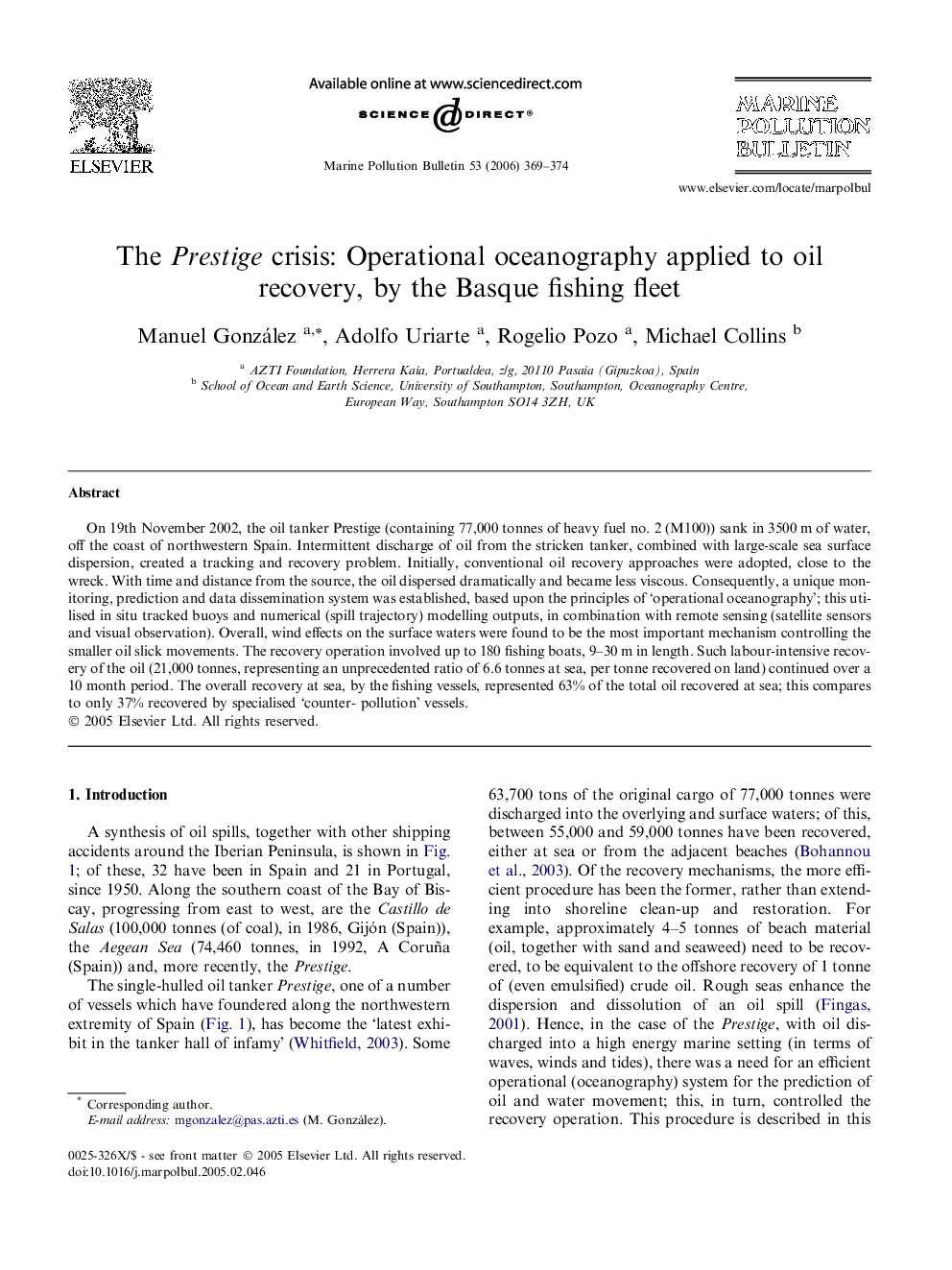| کد مقاله | کد نشریه | سال انتشار | مقاله انگلیسی | نسخه تمام متن |
|---|---|---|---|---|
| 4477757 | 1622776 | 2006 | 6 صفحه PDF | دانلود رایگان |

On 19th November 2002, the oil tanker Prestige (containing 77,000 tonnes of heavy fuel no. 2 (M100)) sank in 3500 m of water, off the coast of northwestern Spain. Intermittent discharge of oil from the stricken tanker, combined with large-scale sea surface dispersion, created a tracking and recovery problem. Initially, conventional oil recovery approaches were adopted, close to the wreck. With time and distance from the source, the oil dispersed dramatically and became less viscous. Consequently, a unique monitoring, prediction and data dissemination system was established, based upon the principles of ‘operational oceanography’; this utilised in situ tracked buoys and numerical (spill trajectory) modelling outputs, in combination with remote sensing (satellite sensors and visual observation). Overall, wind effects on the surface waters were found to be the most important mechanism controlling the smaller oil slick movements. The recovery operation involved up to 180 fishing boats, 9–30 m in length. Such labour-intensive recovery of the oil (21,000 tonnes, representing an unprecedented ratio of 6.6 tonnes at sea, per tonne recovered on land) continued over a 10 month period. The overall recovery at sea, by the fishing vessels, represented 63% of the total oil recovered at sea; this compares to only 37% recovered by specialised ‘counter- pollution’ vessels.
Journal: Marine Pollution Bulletin - Volume 53, Issues 5–7, 2006, Pages 369–374